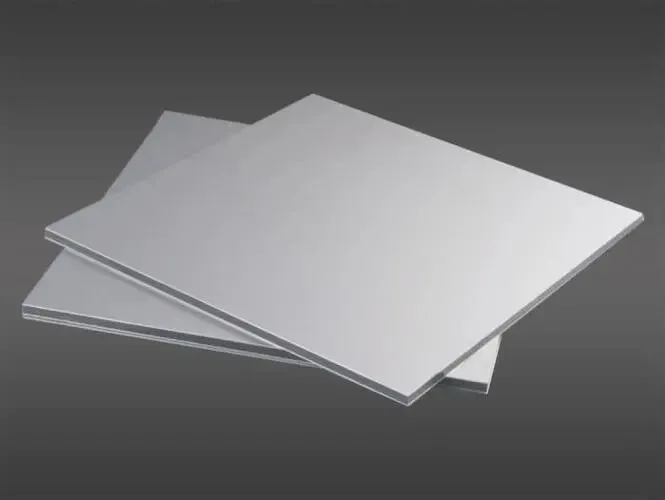Both titanium and stainless steel are excellent materials for industrial use, each with distinct advantages and disadvantages. The "better" choice depends heavily on the specific application's requirements.

Advantages for Industrial Use:
Exceptional Strength-to-Weight Ratio: Titanium is significantly lighter than stainless steel (about 40% lighter) while offering comparable or even greater strength when alloyed. This is crucial for applications where weight reduction is critical, such as aerospace, automotive, and high-performance machinery.
Superior Corrosion Resistance: Titanium forms a passive, self-healing oxide layer when exposed to air, providing outstanding resistance to corrosion in a wide range of harsh environments, including saltwater, chlorine, and many acids and chemicals. This makes it ideal for chemical processing, marine, and desalination industries.
High Melting Point and Temperature Resistance: Titanium has a higher melting point (around 1668°C) than most stainless steels, allowing it to withstand higher temperatures without losing its strength or structural integrity. This is beneficial for high-temperature applications like jet engines and power generation.
High Fatigue Strength: Titanium alloys demonstrate excellent resistance to cyclic loading and stress, meaning components can endure repeated use and pressure fluctuations without succumbing to metal fatigue.
Biocompatibility: While less relevant for general industrial use, its non-toxic and non-reactive nature makes it indispensable for medical implants and certain food processing equipment.
Non-Magnetic: Pure titanium and most titanium alloys are non-magnetic, which can be an advantage in specific applications.
Disadvantages for Industrial Use:
High Cost: This is the primary drawback of titanium. Its extraction and processing are complex and expensive, making it significantly more costly than stainless steel (often 10-30 times more). This can be a major limiting factor for large-scale projects or budget-sensitive applications.
Difficulty in Fabrication and Machining: Titanium is notoriously difficult to machine and weld, requiring specialized tools, techniques, and often inert gas environments to prevent contamination (like oxygen and nitrogen absorption at high temperatures, which can lead to embrittlement). This increases manufacturing costs.
Lower Hardness (compared to some heat-treated steels): While strong, pure titanium isn't as hard as some heat-treated stainless steels, making it potentially more susceptible to scratching or abrasive wear in certain applications.
Poor Thermal Conductivity: Titanium is a poor conductor of heat compared to stainless steel, which can be a disadvantage in applications requiring efficient heat transfer (e.g., heat exchangers where it's not chosen specifically for corrosion).
Advantages for Industrial Use:
Cost-Effectiveness: Stainless steel is generally much more affordable than titanium, making it a more practical choice for a wider range of industrial applications, especially those with budget constraints.
Excellent Corrosion Resistance (various grades): While not as universally resistant as titanium, various grades of stainless steel offer excellent corrosion resistance for specific environments. Grades like 316 stainless steel, with molybdenum added, provide enhanced resistance to chlorides, making them suitable for marine and chemical environments.
Good Strength and Durability: Stainless steel offers high tensile strength, impact resistance, and durability, making it suitable for heavy-duty applications.
Good Weldability and Formability: Many stainless steel grades are relatively easy to weld, machine, and fabricate into complex shapes. This versatility contributes to lower manufacturing costs.
Temperature Resistance: Stainless steel retains its strength and structural integrity across a wide range of temperatures, including high and low extremes.
Hygienic and Easy to Clean: Its non-porous surface makes it easy to clean and sanitize, crucial for industries like food processing, pharmaceuticals, and healthcare.
Recyclability: Stainless steel is 100% recyclable, making it an environmentally friendly choice.
Disadvantages for Industrial Use:
Heavier than Titanium: Stainless steel is significantly denser and heavier than titanium, which can be a disadvantage in weight-sensitive applications.
Lower Corrosion Resistance in Extreme Environments: While good, stainless steel can be susceptible to certain types of corrosion (e.g., pitting or crevice corrosion) in extremely harsh or specific chemical environments where titanium excels.
Can be more difficult to weld/fabricate than mild steel: While generally good, some grades can be challenging, and precautions are needed for certain applications.
Strength can lower at very high temperatures: While heat resistant, extreme high temperatures can lead to reduced strength in some grades.
Choose Titanium if:
Weight reduction is paramount: Aerospace, high-performance vehicles, portable equipment.
Extreme corrosion resistance is required: Chemical processing (especially with chlorides), marine environments, desalination plants.
High-temperature performance without significant strength loss is critical: Jet engines, specialized heat exchangers.
Biocompatibility is a factor: Medical devices, certain food processing components.
Budget allows for the higher initial investment.
Choose Stainless Steel if:
Cost is a major consideration: General construction, common industrial machinery, large-scale projects.
Good all-around strength, durability, and corrosion resistance are needed for less extreme environments: Food and beverage processing, architectural applications, general manufacturing, water treatment.
Ease of fabrication and welding is important.
Hygiene and ease of cleaning are primary concerns.
Magnetic properties are desired or acceptable.
In summary, for most general industrial applications where a balance of strength, corrosion resistance, and cost is important, stainless steel is often the preferred and more economical choice. However, for highly specialized applications demanding exceptional strength-to-weight ratio, extreme corrosion resistance, or very high-temperature performance, titanium becomes the superior material, despite its higher cost and fabrication challenges.
Share this page
If you have any product needs or questions, please leave us a message for consultation.
TEL: 86-18623759992
jason@bettmetal.com
Innovating Materials
for a Brighter Future